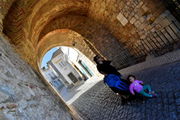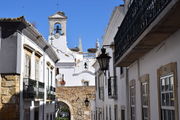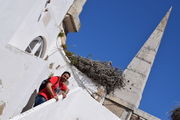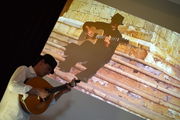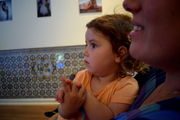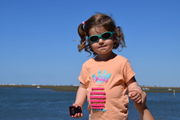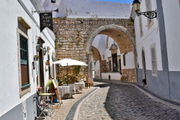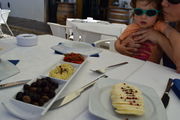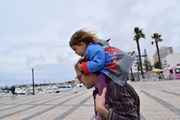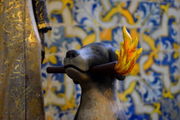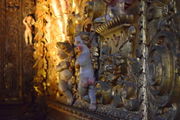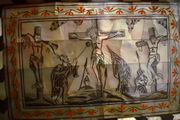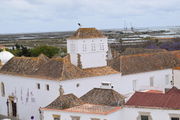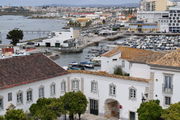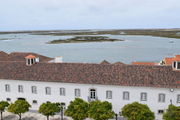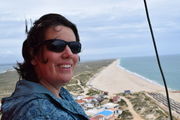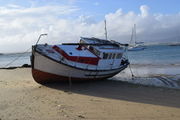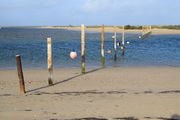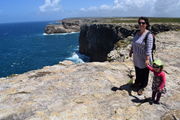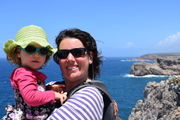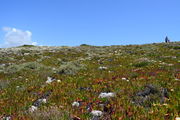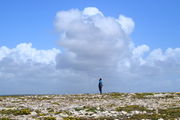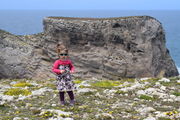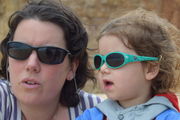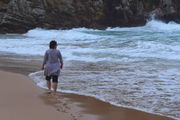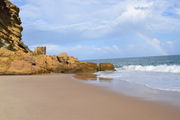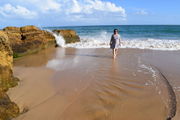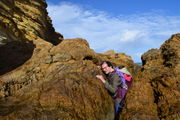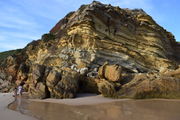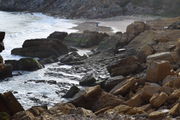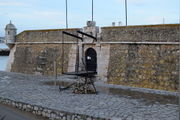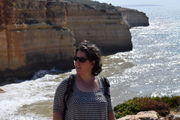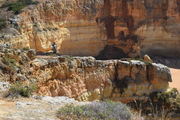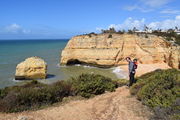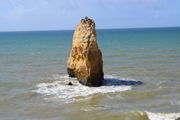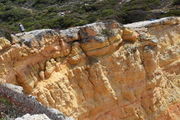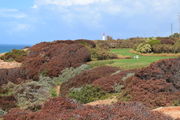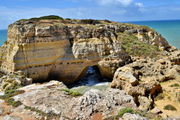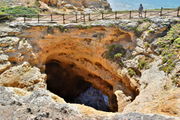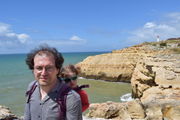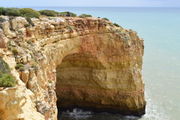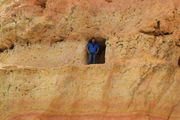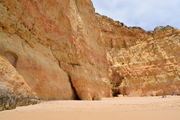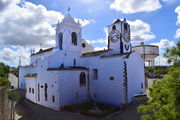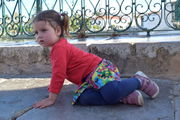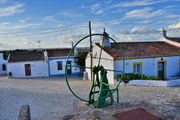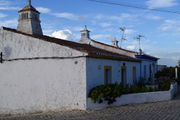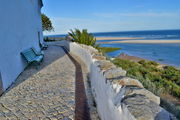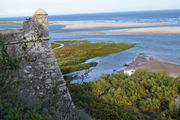m (→Faro) |
m (→The Coast) |
||
| Line 76: | Line 76: | ||
File:Algarve-May2017-25.jpg|Here it teamed with rainwater to carve a whole hole through. | File:Algarve-May2017-25.jpg|Here it teamed with rainwater to carve a whole hole through. | ||
File:Algarve-May2017-24.jpg|Julia not doing much walking on account of her young age. | File:Algarve-May2017-24.jpg|Julia not doing much walking on account of her young age. | ||
| − | File:Algarve-May2017-26.jpg|Camilo trodding on a gigantic cave. | + | File:Algarve-May2017-26.jpg|Camilo trodding on a gigantic cave. Does he even know? |
File:Algarve-May2017-27.jpg|This time in a man-made window opened in the cliff. | File:Algarve-May2017-27.jpg|This time in a man-made window opened in the cliff. | ||
File:Algarve-May2017-28.jpg|Typical beach of the Algarve. | File:Algarve-May2017-28.jpg|Typical beach of the Algarve. | ||
Revision as of 21:19, 27 May 2017
Contents |
Trip to Algarve (May 2017)
The Algarve, from Arabic الغرب al-Gharb, "the West", that is, the west of Al-Andalus, is a mythical part of Europe, where the old continent turns into California, with flamboyant red coast crumbling under the weight of the Ocean to form a cathedral of sandy rocks, and where Portugal turns into water. It is a territory so remote from its land that Alfonso III called himself King of Portugal and the Algarve and that the Portuguese empire was called the United Kingdom of Portugal, Brazil and the Algarves. Even as of today, it is a place that looks out of its place and out of its time.
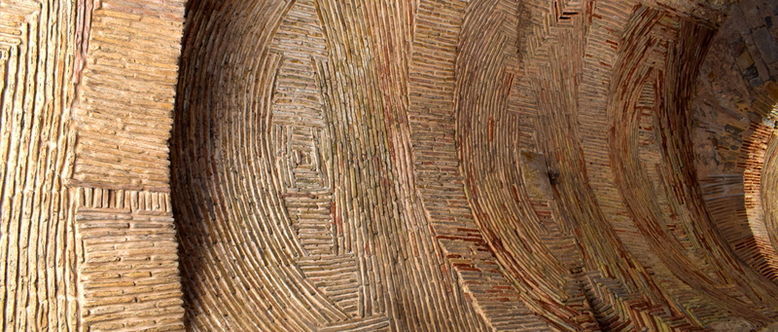
The Algarve is to Portugal what Andalusia is to Spain. It kept for itself a taste of its previous rulers, that today manifests as a wilderness, and independence, a difference from the rest of the country, that makes it exotic and foreign, while at the same time familiar from its culture, gastronomy, language and everything that defines a country. It is like having Portugal in Africa, or Spain in the Maghreb. The main difference between the two is that the Algarve sits by the Ocean while Andalusia sits by the sea. This makes the former more savage, more tumultuous and more beautiful than its neighbour.
Faro
Faro is the capital of the Algarve. It is located not on the coast itself but is separated from the Ocean by what the western part of the Iberian peninsula calls a Ria, an incursion of the waters into the land that is too big for a river but too small to be a sea. Looking at a Ria's tides makes you feel the sea breathing more clearly than feeling your own lungs. The transformations of the panorama covered by a Ria is one of the sights of the natural wonders in Europe. The Ria of Faro is called Ria Formosa.
Faro has a small airport, ridiculously close to the city, with planes glazing over the roofs in a painful constant reminder of the exaggeratedly touristic attendance of the area.
This is how you enter the old city centre, through the Arco da Vila, that still hosts Muslim walls and roofs, the best way to slip between two worlds.
Camilo on top, on his way to meet the stork still guarding the medieval walls.
João Cuña, playing the Portuguese guitar in duo with himself.
Julia captivated by this strange performance.
Now walking by the Ria Formosa, with the movil de botones in hands.
Culatra island
The Ocean is separated from the land by a natural sea wall of sandy beaches. Most of these are unhabited. One is, Culatra island, with three villages that looks like the last villages at the end of the World. They are mainly at the hand of Europe... We had there a great tasting session of Oysters, cultivated from the Ria, with Vinho Verde. Culatra is the sort of place you'd imagine retiring yourself, far from everything else, to forget and be forgotten by the rest of the planet.
The Coast
The most beautiful of the Algarve is its coast. It is famous for its orange, peach, reddish beaches, that you would otherwise imagine exist only by the HWY1, and its turquoise waters that you expect in the Caribeans or Polynesian atolls.
On the Spanish side of Faro

